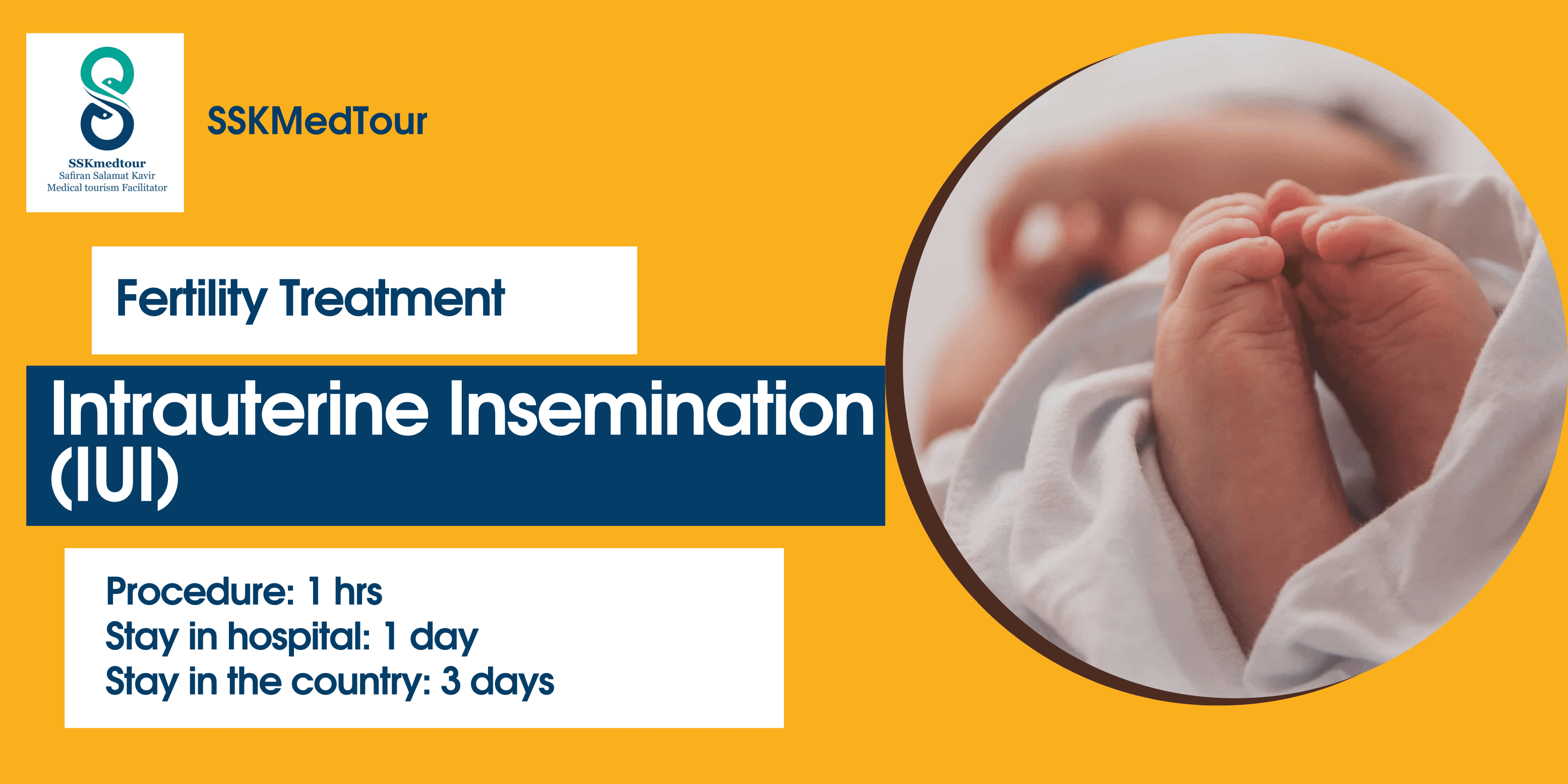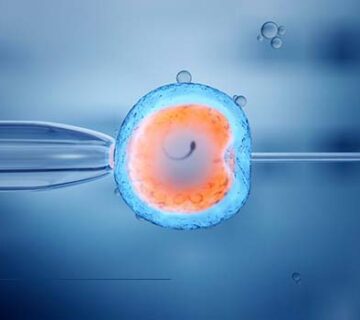

Intrauterine Insemination (IUI) in Iran
Every couple will have a strong desire to have a child at some point in their life. Most couples will achieve pregnancy within one year after having regular unprotected sex. But, for those who fail to achieve pregnancy naturally, then intrauterine insemination might be the right option.
Overview
IUI — a type of artificial insemination — is a procedure for treating infertility. Sperm that have been washed and concentrated are placed directly in your uterus around the time your ovary releases one or more eggs to be fertilized. The hoped-for outcome of intrauterine insemination is for the sperm to swim into the fallopian tube and fertilize a waiting egg, resulting in pregnancy. Depending on the reasons for infertility, IUI can be coordinated with your normal cycle or with fertility medications.

Who is a good candidate for IUI?
Couples with the following conditions are considered to be good candidates for IUI:
• Unexplained infertility
• Endometriosis-related infertility
• Scar tissue inside the cervix due to any surgery
• A woman who undergoes IUI cannot have two blocked fallopian tubes; at least one should be open. She also typically needs to have a normal supply of healthy eggs. She may also have one or more of the following conditions:
• Problems with cervical mucus, which could prevent sperm from traveling to the egg
• Unexplained infertility
• Abnormal ovulation
• Mild endometriosis
• Coital disorders or sexual dysfunction. An example would be erectile dysfunction in a male partner or a sperm allergy
• A partner with mild male factor infertility, such as low sperm count or low sperm motility
• Women who want to use a non-partner sperm donor
• Thick cervical mucus
• Low sperm count
• Low sperm motility
• Ejaculation dysfunction
However, based on the overall health condition of the couples, the doctor will decide whether you are eligible for IUI or not.
PREPARATION BEFORE PROCEDURE
Initially, the doctor will review the medical and medication history of the couple. The woman is advised to undergo certain tests to determine any infections.
Before initiating the procedure, the following preparations are done:
Semen sample: A semen sample is collected either from your partner or the donor. The sperms are now washed and separated from the collected sample by a process known as sperm washing. During this period, the person will be advised to avoid sex for at least two to five days before initiating the procedure.
Monitoring the ovulation: The doctor will advise you to use the ovulation predictor kit to detect the signs of ovulation. Regular imaging tests are also done to track the development of eggs. In some cases, as soon as the egg gets matured, the doctor will administer certain hormonal medication to stimulate the production of eggs.
Determining the timing: IUIs are mostly done a day or two days after determining the ovulation. Depending on the number of sperms and overall health of the woman, the doctor will make a plan and decide the timing of the procedure.
ABOUT PROCEDURE
Anesthesia is not required during this procedure. The woman will be advised to lie on an exam table. Once the woman is ready, the doctor will insert a speculum to open the vagina gently and to visualize the cervix. The cervix and surrounding vaginal tissue are cleaned by using a mild cleansing solution. This is done to prevent the risk of infection. Now, a small amount of washed sperms are drawn in a syringe, which is attached to a catheter.The catheter is then inserted into the uterus through the cervical opening. The sperm sample is now injected into the uterus. Once the insertion is done, the catheter and speculum are removed.
POST-PROCEDURE CARE
The woman needs to lie on the exam table for at least 10 to 30 minutes after the insemination. Mild cramping and vaginal bleeding are common after the procedure. In some cases, the second insemination may be done the same day. Some women may have light spotting for two to three days after the procedure.
In most cases, the woman can get back to normal activity from the next day. Complete bed rest is not required unless advised by your doctor. The woman will be advised to take the prescribed medicines regularly, as suggested by the doctor. Two weeks after the insemination, the woman can have an at-home pregnancy test. However, after the home pregnancy test, you need to visit your doctor for further testing to confirm pregnancy.
RECOVERY TIPS
Follow the below-given tips to increase the chance of pregnancy after IUI:
• Avoid strenuous exercise after IUI
• Eat a healthy and well-balanced diet
• Drink adequate amount of water
Take the prescribed medicines regularly and Take prenatal vitamins
• Manage stress
FAQ
What are the risks of IUI?
There is a small risk of infection following the IUI procedure. Your doctor will use sterile instruments, so infection is very rare. If medications are used to induce ovulation, there is a risk of pregnancy with multiple babies. Sometimes the ovaries over-respond to fertility medications (particularly the medications given as injections) and a condition called ovarian hyperstimulation syndrome may result. A large number of eggs may be matured at one time and possibly released. This can result in an enlarged ovary, fluid buildup in the abdomen, and cramping. If a woman is taking fertility medications to increase the number of eggs when she has an IUI, her chance of getting pregnant with twins, triplets, or more is greater than if she were not taking fertility medications. Having an IUI does not increase the risk of birth defects. The chance of birth defects in all children is 2% to 4% whether conceived naturally or from IUI. The risk of developing an infection after an IUI is small.
Will I need multiple IUIs to become pregnant?
If a woman does not become pregnant after an IUI cycle, they may have to repeat the procedure. Further evaluation or other treatment options such as IVF, may be recommended if a patient does not get pregnant after several cycles.
Does the procedure hurt?
Most women consider IUI to be fairly painless, similar to having a pap smear. There can be some minimal cramping afterward, but often what is felt is ovulation-related rather than from the IUI.
Toggle title
Toggle content goes here, click edit button to change this text.
How soon can I take a pregnancy test?
It is highly recommended that the patient wait two weeks before taking a pregnancy test to prevent a false positive due to hormones and injectibles.
What is the success rate for IUI?
Success rates will vary with the couple’s original diagnosis and the number of cycles of IUI. The pregnancy rate per cycle of insemination is 15-20%. The pregnancy rate may be as high as 30-50% in couples undergoing three cycles of IUI.
Is bleeding common after an IUI?
It doesn’t usually happen, but it isn’t uncommon. It is most common to have some bleeding if the doctor had trouble reaching the cervix. Some women also have light bleeding with ovulation.




No comment